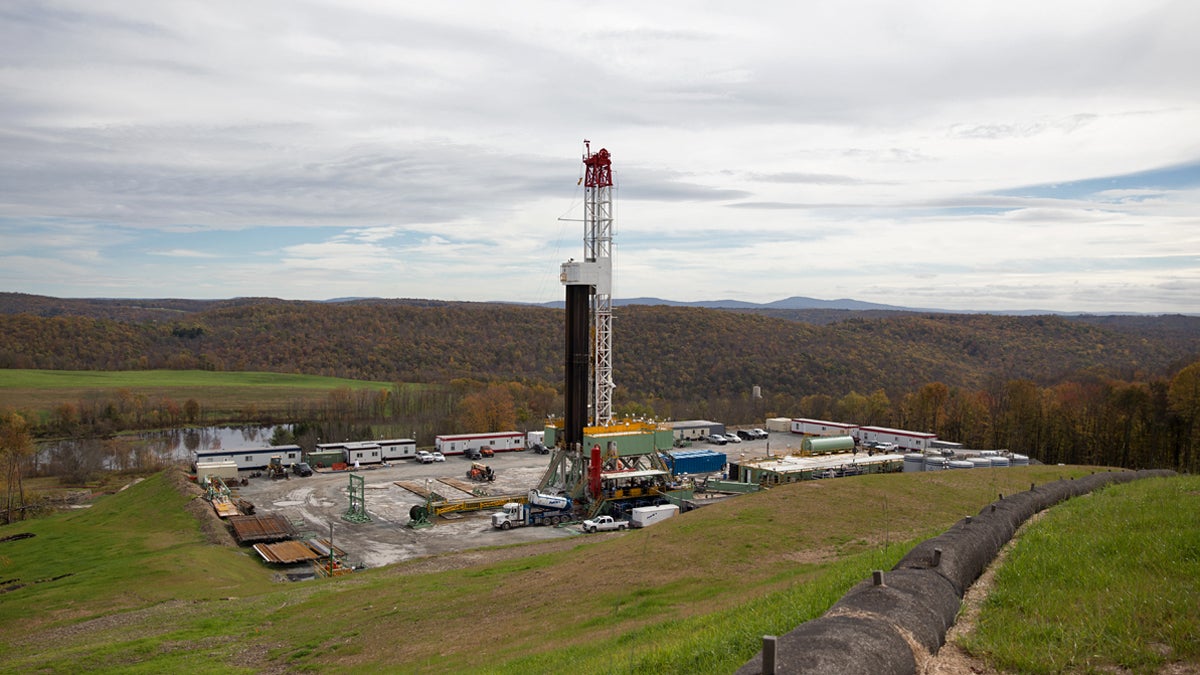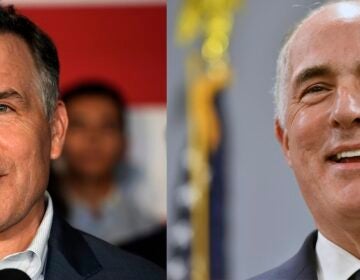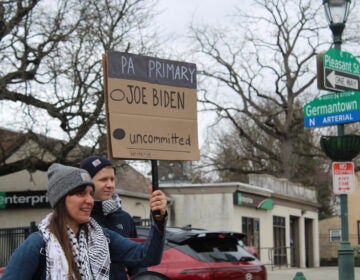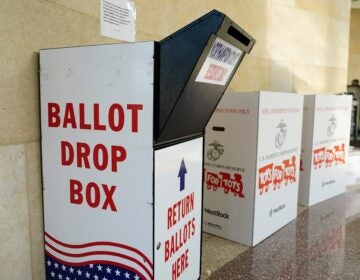Where do Dem candidates for Pa. governor stand on energy, fracking?
Listen
(Lindsay Lazarski/WHYY)
Pennsylvania remains the only drilling state that doesn’t tax the drillers. As budget deficits sap public education, all four Democrats facing off in the May 20 gubernatorial primary see revenue generated by “fracking” as a way to fund teacher salaries and classroom upgrades, though they differ in exactly what they’d charge the gas companies.
Pennsylvania’s gubernatorial primary is just a few weeks away. With four Democrats left in the race, we’re taking a look at what sets each of them apart.
Once a week until the primary, WHYY’s Morning Edition host Jennifer Lynn will interview our beat reporters about where the candidates stand on some of the issues we cover. This week it’s energy and “fracking” with StateImpact Pennsylvania’s Katie Colaneri.
—
Although Pennsylvania has seen the economic benefits of the natural gas boom, many argue more prosperity awaits. It remains the only drilling state that doesn’t tax the drillers. And with budget deficits sapping Pennsylvania’s public education system, advocates argue that revenue generated by “fracking” could fund teacher salaries and classroom upgrades.
In fact, that’s the position of all four Democrats facing off in Pennsylvania’s May 20 gubernatorial primary, though they differ in exactly what they’d charge the gas companies.
Former Department of Environmental Protection Secretary Katie McGinty would levy a 4.5 percent tax; York businessman Tom Wolf would impose a 5 percent tax; and U.S. Rep. Allyson Schwartz is calling for a 5 percent tax on top of the impact fee drillers already pay. Standing apart from the pack is state Treasurer Rob McCord, who wants to charge a 10 percent tax on fracking.
So where would the money go? For starters, “all the candidates are promising more money for public schools and for things like all-day kindergarten, universal pre-K, and after-school programs,” said StateImpact Pennsylvania’s Katie Colaneri.
Here again, the candidates are different. Wolf wants to use some of the money to establish a cap-and-trade program for greenhouse gas emissions with other states and invest in renewable energy sources. Schwartz has a plan to get Pennsylvania using renewable resources for 30 percent of its energy by 2030. McGinty is looking to push traditional utilities to use more renewables as part of their full portfolios.
But fracking, the technique used by the energy industry to extract oil and gas from rock by injecting high-pressure mixtures of water, sand or gravel and chemicals, is not universally adored.
Many Pennsylvanians would be happy to see the practice gone altogether in the commonwealth. So would any of the candidates support a full moratorium on gas drilling?
“No,” said Colaneri, “with the caveat that we need to tighten regulations, we need to have better enforcement, and support the recent court decision that gave back local control to municipalities.”
Environmental advocates do have some reasons to celebrate, though. All the candidates say they would keep the current moratorium on drilling in state parks and forests. And while McGinty has said she’d be open to drilling in the Delaware River Basin in the future, the other candidates would stay away.
As the primary election approaches, much of the public debate may focus on education. “Polls are really showing that natural gas drilling is not the top issue for most voters in the way education is,” said Colaneri.
But for the candidates, fracking will prove a useful tool in helping ease the overwhelming strains on the state’s education system.
“Clearly for these Democrats, a tax on natural gas drilling is their answer for how do we get more revenue for the public school system,” Colaneri said.
Starting next week, StateImpact Pennsylvania will be rolling out a series of videos with all of the candidates talking about their views on energy and environmental issues.
WHYY is your source for fact-based, in-depth journalism and information. As a nonprofit organization, we rely on financial support from readers like you. Please give today.





